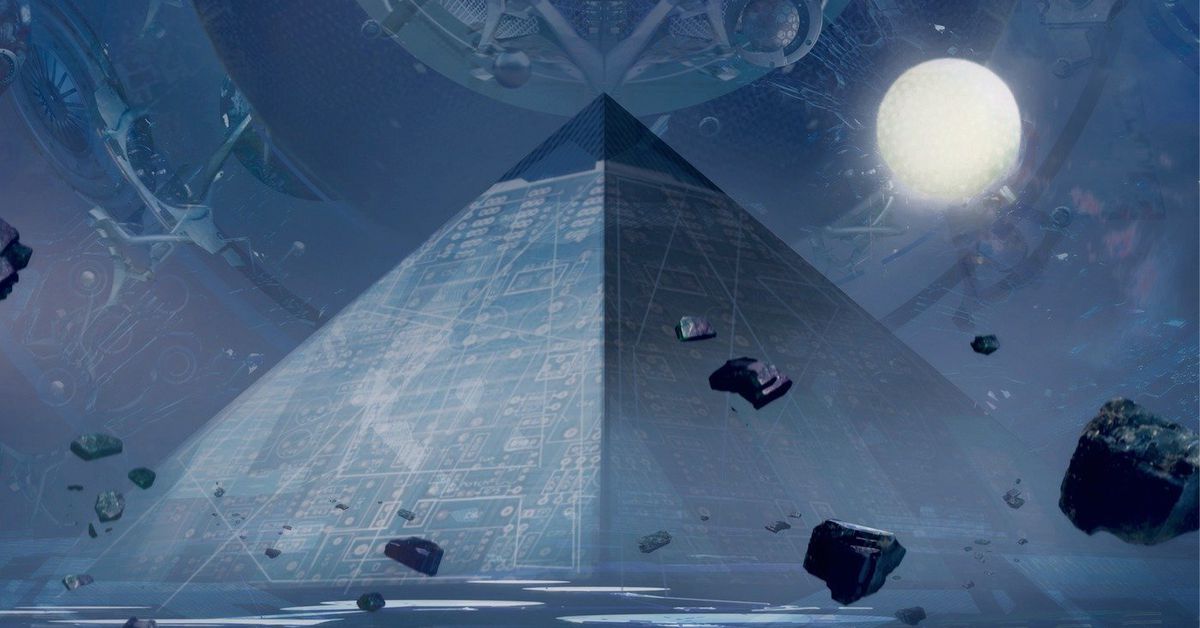
I attended an event in late December at the Chinese Cultural Center in Cairo about translation relations between the Arabs and China, extending from the olden days of Arab merchants travelling to China by sea and land (Silk Road and Route) to the modern days of teaching Chinese at university. Typically, I posed a question about translating Chinese SF into Arabic and the same in reverse.
By Emad Aysha
I didn’t get much of an answer, but I’ll deal with that later. I began my queries by talking about the great Abbasid library of Baghdad, Dar Al-Hikmah (House of Wisdom) if it had any history of translating Chinese texts. The library was set up to transfer knowledge from foreign languages into Arabic.
The Egyptian speaker, Dr Mohsen Fergani, said it wasn’t his field of specialisation but from what he’d read and heard, most likely not. The great library was, he explained, to deal with sectarian fissures in Arab-Islamic Islamic culture at the time – the rationalist philosophers (Mutazillah) vs the traditional scholars of the Quran and Hadith. I didn’t have the mental wherewithal at the time to mount a reply – I was exhausted and needed to get out of the lecture theatre, actually – but rebuttals clarified over time in my head. Dar al-Hikmah was built before the schism developed between the Mutazillah and the traditionalists, and Arabs were actively translating other things like medical sciences from the Persians and Copts, as well as the Greeks. Let alone astronomy and literature from places like India. The 1001 Nights is mostly Persian and Indian stories, and there are the famous animal stories Kalila Wa Dimna, also from India, that are replete with philosophical and moral lessons. (The story of the mouse and the lion you can find in Kong: Skull Island, for instance). So there ‘should’ have been Chinese translation in Baghdad at the time, if only because Arabs learned papermaking, ceramics and porcelain making from the Chinese via Central Asia.
Further, memories and realisations came back to me. There was a book written by the Persian religious leader Mani in the Dar al-Hikmah, with illustrations in gold and silver ink. When Al-Mamun laid siege to Baghdad – to overthrow his brother Al-Amin – he used flaming boulders fired from catapults, and they struck the library. People witnessed the gold and silver melting and leaking out of the edges of Mani’s illustrated book. The tragedy of it!
I read that in a book on illustration and graphic representation in Islamic history in Arabic. So Muslim historians and linguists could preserve pagan works like that. In that case, chances are they had concerns ‘other’ than sectarian debates and Greek philosophy and were open, very open, to the wisdom of the Far East. (The Umayyids began the translation craze anyway). I’m not a specialist myself, so I can’t answer my question – the whole reason I asked the speaker – but an answer to my SF question was afforded right out of the blue. Sitting right in front of me was an academic and translator, and she had translated some Chinese SF into Arabic. Some heavy-duty novels, in fact, Dr Dina Tohamy from Benha University. We traded contact details, and she got me a summary of her thesis comparing Egyptian and Chinese SF, which talks about the need to translate pioneers of Arabic SF like Nihad Sharif and Mustafa Mahmoud into Chinese. So there’s hope.
The whole reason I brought up the issue is because there’s a growing market for Chinese SF in Egypt. Two good literary friends, Dr Hosam Elzembely (founder and director of the Egyptian Society for Science Fiction) and YA author Ahmed Salah Al-Mahdi are big fans of The Three-Body Problem and The Wandering Earth. Bruce Lee and Jackie Chan are already household names in Egypt; no reason that the same can’t hold for Liu Cixin. I’ve lamented how I can never find Chinese SF in Arabic at the Cairo International Book Fair, with all the incredible stuff they do, in fact, have there – everything from folk stories and myths to textbooks in economics to WWII novels to cookbooks. Where’s their futurist literature, I ask you?
This could be the soft power/public diplomacy plank the Chinese have been looking for to reach the Arab world, specifically the younger generation, which is more into anime, comics, video games and sci-fi movies and novels than soap operas and period dramas.
All we’d ask in return for translating their works into Arabic is to have our works translated in exchange into Chinese, helping bring both cultures closer to each other and create new markets for both parties. (To be fair, we need their market more since we’re still in the struggling author phase). I’d add that the Chinese need to know how they are portrayed in our futurist literature. By and large, they are being described nicely as the new economic, if not a military superpower but often in benign terms. And this has been happening for a while now and across the board.
Dr Hosam has a novella on Mars where the ‘silk road’ is mentioned. I have my own published short stories set on Mars dealing with the Chinese and other Asians – Japanese, Malays, and Iranians. Wael Abdel Rahim has a lovely short story about cooperation between the Arabs and the Chinese. Before any of us Palestinian author Subhi Al-Fahamawi had Chinese as the new powerhouse in his novel Alexandria 2050 (2009), supplanting America. But here’s something we can learn from the Chinese: the need not to have a global hegemon, to begin with. Have a cooperative, balance-of-power world. I bumped into a Chinese girl once at another cultural event, and she insisted the Chinese had no intention of taking America’s place, and I agreed with her. It exhausts your economy and corrupts your politics. Look at the US and, before it, Britain.
If sci-fi in translation can teach key diplomatic and historical lessons, then I’m all for it. Let’s just so hope somebody reads this article on each side and turns fiction to fact!!






